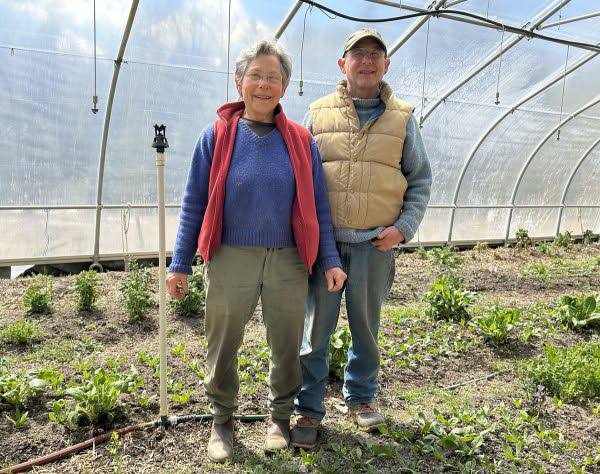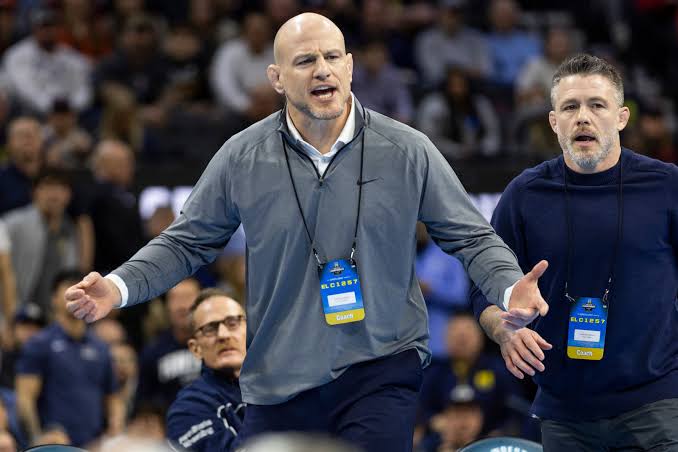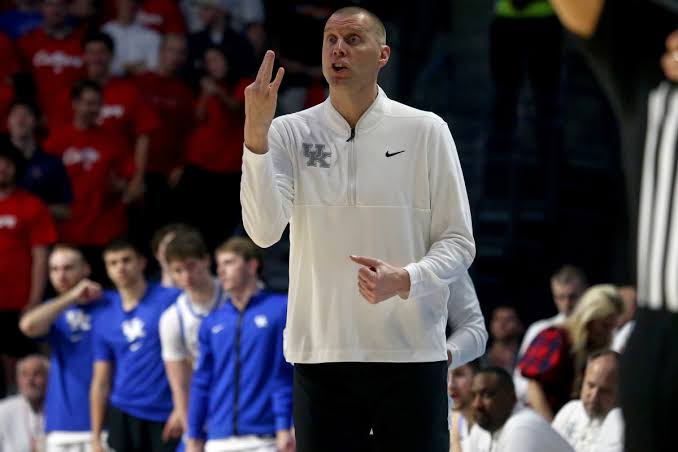
For decades, Maine has been shaped by people coming here to farm, including a wave that gathered steam in the 1970s. The people who came here then are now at or past retirement age, but some are still working because they can’t find someone to take over their land. They’ve put years of their lives into building up their farms, and want to see the land continue to produce local food. It’s also important to them to preserve their way of life. That dilemma is especially felt in Blue Hill, where development pressure is high and new residents are flooding in. The Bangor Daily News spoke to three longtime farmers there who, despite the state’s hot real estate market, are struggling to sell or lease their land because they’re searching for people to take over their farms rather than turn them into vacation homes. That’s partly due to the challenges facing younger generations, they say, including their own past apprentices who love their farms but are either unable or unwilling to take over. Newer farmers, for their part, face prohibitively expensive land prices paired with low wages. Here’s how those factors are coming together for the farmers, who are all in their mid-70s and trying to secure their farms’ futures. Elena Bourakovsky of Backstage Farm
Bourakovsky’s 1-acre farm started as a kitchen garden outside her circa-1830 farmhouse on Route 15. It grew into a farmer’s market booth and a side business selling Moxie-fermented vegetable products. But Bourakovsky didn’t set out to be a farmer — far from it. In the 1980s, she was a costume designer for a theater in Leningrad, Russia, where she met visiting Maine director Bill Raiten. Eventually, she came to the United States and they married. Raiten, the founder and director emeritus of the New Surry Theatre who died in 2022, was also interested in the back-to-the-land movement. He gave her a cucumber and tomato plant one year, and she was hooked, finding a way of life that she believes is good for the soul. “People go to church, people believe in something rather than what’s around them,” she said. “I come out in the morning at 6 o’clock when everything is waking up. That’s my religion. That’s what I do.” Now, at 73, she can’t keep up physically and plans to move in with family in Vermont, where she’ll be near her grandchildren and continue to garden. Her farm has been listed on agricultural sites and local postings for $400,000 since October; the fermenting business is in the hands of a former apprentice. The farmhouse has a certified commercial kitchen, recent upgrades and a $25,000 homestead tax exemption. In addition to a greenhouse, farming equipment and vegetable beds, the property has established and highly productive berry bushes, peach trees and asparagus patches. One potential match for the property is up in the air. If something doesn’t come together by the end of April, she’ll have to list the farm on the open market.
Bourakovsky thinks it’s been more challenging finding a farmer to buy because the property is small, though she said an acre can produce a lot more food than many people think. She’s offering it as a homestead or a side business for someone employed off the farm. The sale price is the result of a recent reappraisal, which also surprised her as property values rise in Blue Hill. Since 2020, the average home price in town has risen from about $306,000 to more than $478,000, and it’s nearly doubled in the last decade, according to Zillow data. “Everybody wants to be here,” she said. It’ll be difficult to leave her community, she said. It’s also hard to think about her legacy being turned into landscaping. Bourakovsky doesn’t want to see the gardens become a lawn or the house only occupied for vacations, something she’s seen happening more in Blue Hill lately. If a buyer didn’t want to farm, she hopes they might be able to share the greenhouse or make lease arrangements with the many people she knows who want to farm but can’t afford or access land to do so. “It’s such a wonderful way of life,’’ she said. “I want somebody else to be able to experience it.” Phil Norris and Deborah Wiggs of Clayfield Farm
Norris and Wiggs farm together on a 15-acre property at the end of a narrow dirt road in East Blue Hill. Wiggs has lived there since the late 1970s, when land was $500 an acre. At the time, she pooled resources with other young back to the landers to buy a larger parcel and start a community. She met Norris, an enthusiastic farmer, at a contra dance in 1985. Together, they cleared the farm, which was once entirely forested, and built up its clay soil into productive land with 3 acres in production at its peak. Clay has a reputation for making farming difficult, but by adding horse manure and peat moss they’ve turned it into fertile, mineral-rich land that holds onto water well during droughts. Norris and Wiggs have a lot of knowledge and experience to share, and they’ve spent more than five years searching for successors. Unlike Bourakovsky, they plan to stay on the property and aren’t under pressure to sell. At first, they hoped to find a younger couple who would work with them for a yearlong trial, then move into a lease. After one such trial with a potential farmer during the pandemic didn’t work out, they changed plans. They’re offering a yearlong trial lease for a farmer to operate independently, followed by long-term options. That’s the approach storied Brooksville farmers Eliot Coleman and Barbara Damrosch used to find the young successors who took over their farm last year. Wiggs said she knows many other older farmers who may find themselves in similar situations.
The Clayfield property has two winterized homes one of which the couple plan to live in for the rest of their lives along with two apprentice cabins, equipment and horse barns, a woodworking shop, a high tunnel, a greenhouse, a walk-in cooler, a sawmill, two wells, a farm pond, equipment for mowing, tilling and irrigation, two tractors and fencing. They see the farm as good land that should stay in production, and they know firsthand how easy it is for trees to grow back and the farmland to disappear, Norris said. Local food is important to them, and like Bourakovsky, they don’t want to see their farm become a second home or a luxury property. They also share a belief that farming is a good life. “Our number one goal is to feed people,” Norris said. “And make beauty,” Wiggs added. Their main challenge in finding a successor is their intent to continue living on the farm, they said. Wiggs also suspects fewer young people are interested in farming today, while Norris thinks what they’ve built there may be intimidating to newer farmers. Any future farmer would also be joining a community along their narrow road, they said, and the size of it rules out agritourism, which Maine farmers are increasingly relying on to diversify their income. With all of the resources available from the farm, both are confident they will find a successor, even if it takes time. “Whatever’s happening is what needs to happen,” Wiggs said. “We’re open to possibilities.”






